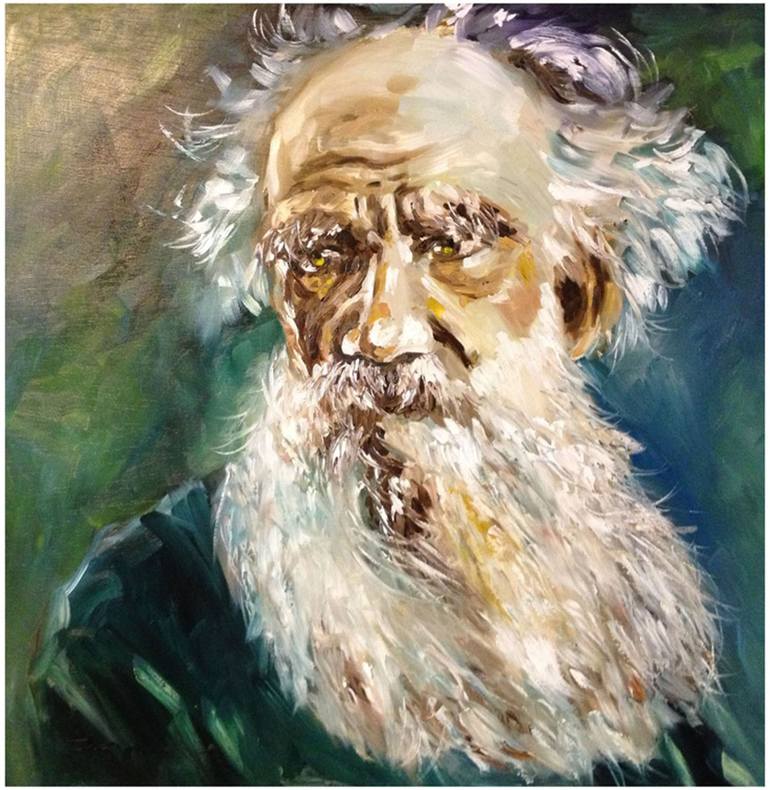Leo Tolstoy Archive
Written: 1912
Source: The Forged Coupon: And Other Stories, by Leo Tolstoy, 1912, Translated from the Russian by Herman Bernstein, published by Ogilvie Publishing Company, 57 Rose Street, New York, produced for Gutenberg.org by Judith Boss and David Widger, 2006.
Transcription/Markup: Andy Carloff
Online Source: RevoltLib.com; 2021

One day Maria Semenovna came home from the treasurer’s office, where she had received her pension. On her way she met a schoolmaster, a friend of hers.
“Good day, Maria Semenovna! Have you received your money?” the schoolmaster asked, in a loud voice from the other side of the street.
“I have,” answered Maria Semenovna. “But it was not much; just enough to fill the holes.”
“Oh, there must be some tidy pickings out of such a lot of money,” said the schoolmaster, and passed on, after having said good-bye.
“Good-bye,” said Maria Semenovna. While she was looking at her friend, she met a tall man face to face, who had very long arms and a stern look in his eyes. Coming to her house, she was very startled on again seeing the same man with the long arms, who had evidently followed her. He remained standing another moment after she had gone in, then turned and walked away.
Maria Semenovna felt somewhat frightened at first. But when she had entered the house, and had given her father and her nephew Fedia the presents she had brought for them, and she had patted the dog Treasure, who whined with joy, she forgot her fears. She gave the money to her father and began to work, as there was always plenty for her to do.
The man she met face to face was Stepan.
After he had killed the innkeeper, he did not return to town. Strange to say, he was not sorry to have committed that murder. His mind went back to the murdered man over and over again during the following day; and he liked the recollection of having done the thing so skillfully, so cleverly, that nobody-would ever discover it, and he would not therefore be prevented from murdering other people in the same way. Sitting in the public-house and having his tea, he looked at the people around him with the same thought how he should murder them. In the evening he called at a carter’s, a man from his village, to spend the night at his house. The carter was not in. He said he would wait for him, and in the meanwhile began talking to the carter’s wife. But when she moved to the stove, with her back turned to him, the idea entered his mind to kill her. He marveled at himself at first, and shook his head; but the next moment he seized the knife he had hidden in his boot, knocked the woman down on the floor, and cut her throat. When the children began to scream, he killed them also and went away. He did not look out for another place to spend the night, but at once left the town. In a village some distance away he went to the inn and slept there. The next day he returned to the district town, and there he overheard in the street Maria Semenovna’s talk with the schoolmaster. Her look frightened him, but yet he made up his mind to creep into her house, and rob her of the money she had received. When the night came he broke the lock and entered the house. The first person who heard his steps was the younger daughter, the married one. She screamed. Stepan stabbed her immediately with his knife. Her husband woke up and fell upon Stepan, seized him by his throat, and struggled with him desperately. But Stepan was the stronger man and overpowered him. After murdering him, Stepan, excited by the long fight, stepped into the next room behind a partition. That was Maria Semenovna’s bedroom. She rose in her bed, looked at Stepan with her mild frightened eyes, and crossed herself.
Once more her look scared Stepan. He dropped his eyes.
“Where is your money?” he asked, without raising his face.
She did not answer.
“Where is the money?” asked Stepan again, showing her his knife.
“How can you . . .” she said.
“You will see how.”
Stepan came close to her, in order to seize her hands and prevent her struggling with him, but she did not even try to lift her arms or offer any resistance; she pressed her hands to her chest, and sighed heavily.
“Oh, what a great sin!” she cried. “How can you! Have mercy on yourself. To destroy somebody’s soul . . . and worse, your own! . . .”
Stepan could not stand her voice any longer, and drew his knife sharply across her throat. “Stop that talk!” he said. She fell back with a hoarse cry, and the pillow was stained with blood. He turned away, and went round the rooms in order to collect all he thought worth taking. Having made a bundle of the most valuable things, he lighted a cigarette, sat down for a while, brushed his clothes, and left the house. He thought this murder would not matter to him more than those he had committed before; but before he got a night’s lodging, he felt suddenly so exhausted that he could not walk any farther. He stepped down into the gutter and remained lying there the rest of the night, and the next day and the next night.